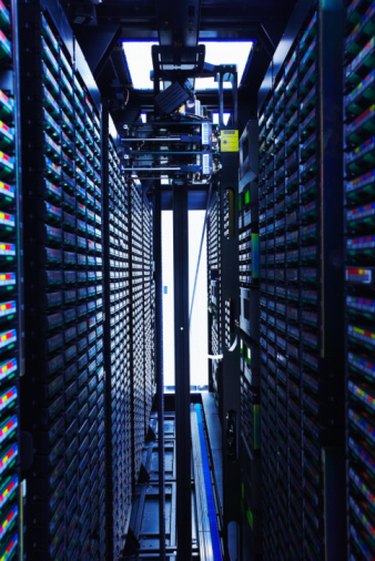
Supercomputers are specialized devices built to perform extremely difficult calculations extremely quickly. They can be used to play chess, render high-quality computer graphics or accurately simulate weather systems. Supercomputers require special maintenance intended to keep them cool, and they consume prodigious amounts of electricity, but the advantages of a supercomputer are so great that they continue to be developed with ever-increasing capabilities.
Decreasing Processing Time
Video of the Day
The primary advantage that supercomputers offer is decreased processing time. Computer speed is commonly measured in "floating point operations," or "FLOPS." Average home computers can perform up to a hundred billion of these operations per second, or 100 "gigaflops." Supercomputers, however, are tens of thousands of times faster, meaning that calculations that would take your home computer hours or days can be solved by a supercomputer in a matter of seconds.
Video of the Day
Solving New Problems
The sheer processing power of supercomputers means that they can be used to do things that ordinary computers simply couldn't handle. For example, weather forecasting is highly complex and requires extremely sophisticated algorithms. Only supercomputers have the ability to perform these calculations in a timely fashion. Supercomputers have also permitted great strides in filmmaking and special effects. Pixar uses a supercomputer with more than 1,000 individual CPUs; even using this computer, each frame of their movies can take up to 90 hours to render.
Lowering Costs
By decreasing the amount of time needed to complete processing tasks, supercomputers can lower costs, saving money in the long run through increased efficiency. For this reason, some companies specialize in renting supercomputers to clients who don't need a full-time computer but do need occasional bursts of processing power. Supercomputers can also lower costs by allowing engineers to create computer simulations that remove the need for expensive, high-precision physical models or testing environments.
Improving Safety
Beyond CGI and scientific applications, supercomputers can also help to make the world a safer place. Simulations or tests that would be difficult or extremely dangerous in the real world can be performed on a supercomputer instead. For example, nuclear weapons must be tested to make sure that they function. Without supercomputers, the testing process would have to involve detonating a nuclear bomb; computers allow engineers to obtain the same results without running the risks of an actual nuclear explosion.